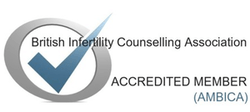
“I definitely feel different a lot of the time now. Before (counselling) I felt lost and didn’t know who I was, now I understand things more. I have been able to recognise when I’m feeling low and have coping methods now which help pull me out before I spiral.”
SL, counselling client
Counselling helps many people with depression and it has been shown to be very effective in their recovery. There is no mystique about my counselling and I aim to put you at ease, especially if you haven’t been to counselling before. Knowing that you can get to where you want to be, over time, may help you overcome any fear you may have about trying something new. Talking to a stranger about your fears and worries might seem intimidating, but that is part of what makes the process work.
At our first session I will carry out an assessment. This simply means that I take information about you. Then I ask you what has brought you to counselling and you begin to talk about what is on your mind. I will help you to set the goals you want to reach from counselling.
My counselling is person-centred, so you talk about what you want. I listen with empathy and without judgement and it gives you the chance to tell your story as you see it. You can reflect on how events or relationships affect you now, how negative thoughts and feelings influence you, and on what changes you want to make to become happier and more fulfilled. I ask questions, offer insights and gently challenge.
It can be a relief to talk about things fully for the first time, but it can also be unsettling. It takes time to process things, reflect on meaning and cope with setbacks. I recommend you have at least three sessions, and we review progress and how you are meeting your goals.
Hopefully your depression will go after a period of time. You may wish to have counselling support throughout this period, which could be months; some issues and past events take time to understand and resolve. Or it might be that you learn enough about yourself to take away with you. Some clients move to fortnightly counselling and others like to come back for ‘top up’ sessions, monthly or longer.
Some events that can lead to depression
- Bereavement
- Bullying at school, college, online or work
- Difficulties conceiving
- Postnatal depression
- Hormonal changes such as puberty or menopause
- Financial difficulties
- Family and relationship difficulties (current and historical)
- Public or media shaming
- Workplace stress
- Existential crises (midlife crises)
- Illness and disability
You can come to me for counselling either as stand-alone therapy or to complement your GP-led medication treatment. It is not advisable to see two different counsellors (and possibly different types of counselling) at the same time. I don’t give a medical diagnosis nor do I advise on medication, as that is a decision between you and your GP.
Other situations I can help with
- Relationships – partners, affairs, family, children, friends, estrangement, bereavement
- Reproductive – fertility, miscarriage and stillbirth, fertility preservation, termination, pregnancy and birth, postnatal depression, donor conception and donor conceived people
- Work – careers, redundancy, bullying, relationships with colleagues
- Personal – self-esteem and confidence, bullying, sexuality
See How Counselling Works. Please contact Sandra to discuss your situation and concerns.

